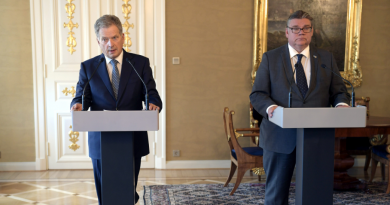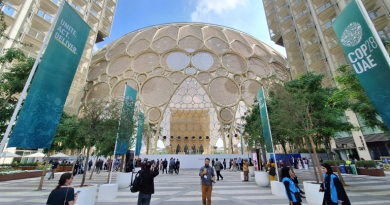Health care in Nunavik – What the candidates say …

As part of Eye on the Arctic‘s special report on health care in Nunavik, we reached out to all five candidates running in Ungava, the provincial riding where Nunavik is located, with one question:
If your party were to form the new government, what one concrete action could Nunavimmiut expect in the first year of the mandate that would improve health care in the region?
Here’s what they told us…
Denis Lamothe, Coalition Avenir Québec —
In addition to the numerous efforts being made to attract and retain health-care workers in the region during the past years, I am confident that the Plan Dubé [for the province] will help improve the situation with the addition of 660 additional doctors and 5,000 health professionals in the [provincial] network and measures to improve work environments and further decentralize the network to the regions in order to better adapt services to local needs.
This plan aims to ensure better access to better health services for all Nunavimmiut, but how this plan will be implemented in the region, particularly in Nunavik, will be discussed with the Nunavik Regional Board of Health and Social Services and the Inuit leadership.
It is crucial that solutions are developed in close collaboration with local authorities, so that actions taken are aligned with the specific needs and context of Nunavik and I am committed to listening to the demands of regional and local authorities so that the population of Nunavik receives quality health care.
Tunu Napartuk, Quebec Liberal Party —
If the Liberal Party were to form the next government, there would be an immediate improvement on communication. The lack of connection and openness has been extremely difficult with the current government. There is very little consultation and accountability.
Our reality in the northern part of Québec is so different from the rest of the province that a sitting government needs to visit our region and see for themselves how unique and challenging it is. Inuit, the Crees and the Jamésien are an important members of the province and we need to start respecting this.
Christine Moore, Parti Québécois —
Review agreements for health professionals to provide adequate compensation for northern work and formally recognize nursing expertise in rural and northern practice and enhance training in the enlarged role.
Implement bursary programmes for the recruitment of health professionals that’s conditional on a commitment to work in the North for the public system after graduation and allow a transfer of seniority for those who come to work in the North.
Maïtée Labrecque-Saganash, Québec Solidaire —
We made an appearance with our party leader to guarantee equitable access to health care for the Northern communities.
In addition to increasing incentives for health-care workers, I also want to take action to ensure access to safe drinking water and quality sanitary facilities throughout Ungava.
Nancy Lalancette, Conservative Party of Quebec —
We would have to meet the representatives of this population and examine the needs and projects that could be done together, and examine studies about the challenges in the region.
Health outcomes are related to education, economic development and transportation. We think it is important to invite Indigenous people to be active in the exploitation of natural resources on their lands to achieve this economic development. We are the party that has a great interest and ambitions for this kind of project.
Write to Eilís Quinn at eilis.quinn(at)cbc.ca
Related stories from around the North:
Canada: Justice system in northern Quebec straining at the seams and devastating victims, say Crown prosecutors, Eye on the Arctic
Finland: Police response times up to an hour slower in Arctic Finland, Yle News
United States: Violence Against Women bill would expand power of up to 30 Alaska tribal courts, Alaska Public Media



